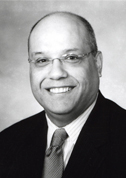© 2015 The Texas Lawbook.
By Kerry Curry
(Oct. 6) – Diversity in the workplace at Dallas law firms is still elusive, according to the “2015 Law Firm Diversity Report” from the Dallas Diversity Task Force.
Only two of Dallas County’s largest law firms reflect the diversity of the Texas Bar and the state’s population, indicating plenty of room for improvement, according to the report.
Sidley Austin and Jones Day managed to earn grades of at least 70, meaning they matched Texas Bar demographics and statewide population demographics.
The report presents a snapshot of the diversity of lawyers practicing at the 20 largest law firms in Dallas County.
Eleven firms improved their composite scores over last year, and the overall composite score rose to 50.32 from 48.87 last year. Despite only incremental improvements, the news wasn’t disappointing, said Andrew Chon, chairman of this year’s task force.
“These are target goals or benchmarks; we don’t see it as a pass-fail in terms of not meeting those demographics,” Chon said. “It’s a benchmark that all firms can be judged uniformly against so that they can see what their peer firms are doing and see what works and what doesn’t in terms of diversity efforts.”
Interestingly, the Dallas managing partners at Sidley Austin and Jones Day, the two passing firms, are Hispanic women.
At Sidley, the law firm offers a number of diversity programs, including an enhanced mentoring program for its ethnically diverse attorneys that provides a second mentor to each diverse associate as an additional resource, said David Sillers, an associate in the Dallas office and a member of the diversity committee.
“It’s a way to get them better integrated into the firm right off,” he said. “It’s like a traditional mentorship with a slight diversity slant, if you will.”
Yvette Ostolaza, managing partner of Sidley Austin’s Dallas office and a member of the executive committee, said that while the overall results of the survey are somewhat disappointing, firms such as Sidley are making headway.

“Success breeds success,” she said. “Our office is very diverse and we have a lot of diverse partners. If you are someone looking for role models and that is a concern to you … then you are naturally going to be attracted to the Sidley office.”
Chris Luna, chief counsel of MetroPCS, spoke at a luncheon Tuesday at the Belo Mansion, where results of the survey were released.
In an interview with The Texas Lawbook afterward, Luna said this is the first year that all 20 of the largest firms participated in the survey since it was initiated in 2006.
“I see that as a positive sign,” he said.

“The other positive sign was that 11 firms had their [scores] go up and only four had their scores go down. I think that was a positive takeaway.”
Still, Luna noted there is much work to be done. One thing that really stands out in the survey is how little diversity has reached the top echelons of the big law firms.
Just 50 of the 726 equity partners are racial and ethnic minority lawyers (just below 7 percent). In comparison, racial and ethnic minority attorneys comprise about 13 percent of the total attorneys at these firms and approximately 17 percent of the state bar.
The survey found that 10 percent of the 20 largest firms have no racial or ethnic minority equity partners at all.
All the firms surveyed have women equity partners. However, only K&L Gates and Sidley Austin equaled or exceeded the percentage of women lawyers in Dallas County, which is approximately 34 percent.
Here are some more of the report’s highlights:
• Jones Day holds the highest composite score for this year (72.58).
• Baker Botts has the most improved composite score, increasing its score from 2014 by more than 13 points (37.15 to 50.80).
• In addition to Baker Botts, Andrews Kurth, Jackson Walker and Thompson Coe improved their composite scores by more than five points.
• Of the 16 firms that responded to attrition questions, the data shows that 17 percent of all attorneys who ceased employment with the firms were racial or ethnic minority attorneys.
• Of the total attorneys who ceased employment with the firms, the data shows 33 percent were women attorneys.
• 100 percent of firms surveyed reported providing health care benefits to same-sex partners or spouses on economic par with health care benefits offered to non-LGBT attorneys.
© 2014 The Texas Lawbook. Content of The Texas Lawbook is controlled and protected by specific licensing agreements with our subscribers and under federal copyright laws. Any distribution of this content without the consent of The Texas Lawbook is prohibited.
If you see any inaccuracy in any article in The Texas Lawbook, please contact us. Our goal is content that is 100% true and accurate. Thank you.
